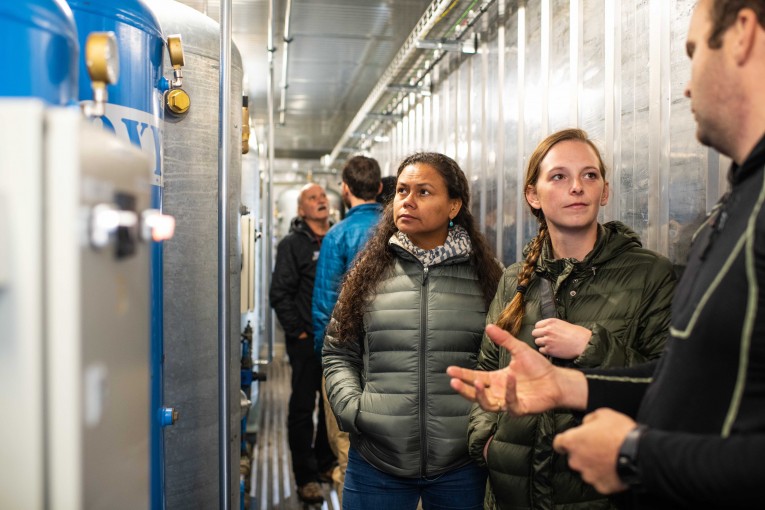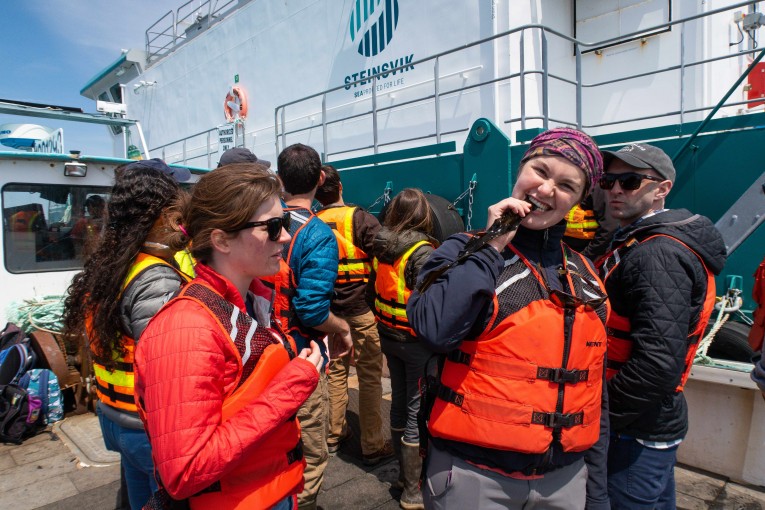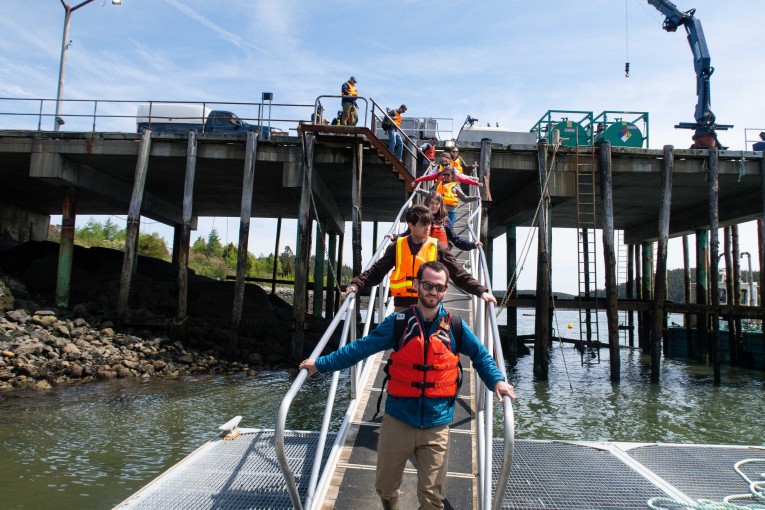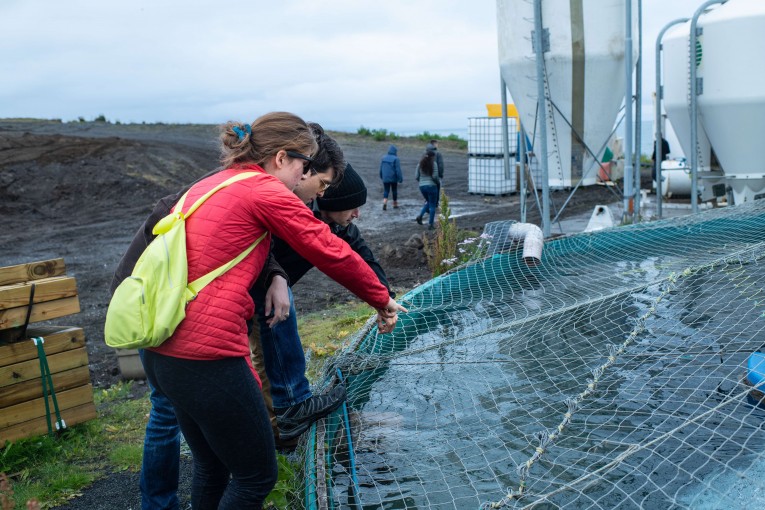BACKGROUND
Workforce development in the marine biology and ocean food systems sectors will be critical to seeing Maine’s marine economy prosper in an uncertain and unpredictable future. All levels of preparation are key in order to serve all the labor needs of a growing and changing industry. The University of New England’s School of Marine Programs has developed a unique set of degree programs that seek to address some of these workforce needs. At the undergraduate level, the school has In addition to traditional degree tracks in Marine Biology and Oceanography, degrees in; Marine Affairs, Marine Entrepreneurship, and Aquaculture and Aquarium Sciences. Each of the School’s programs has the same foundational education in Marine Science with specialized coursework geared towards each degrees area of specialization.
Marine affairs students engage in curriculum focused on conservation, management, regulation and governance of the ocean, one of only four undergraduate programs in the country with this particular focus. Marine Entrepreneurship students take courses across the School or Marine Programs and the Department of Business, some of whom have even started their own businesses while still in school. Aquaculture and aquarium science students, part of a first-in-the-nation program navigate a skills-heavy, hands-on curriculum paired with applied marine sciences and boast a 10-year history.
“When I found out UNE had a Marine Entrepreneurship program, everything fell into place. I started my own business at the end of my sophomore year….This program has been one of the best opportunities I have been given”
– Jillian Robillard’ 20, Marine Entrepreneurship Student
The newest addition to the suite of Marine degree programs comes in the form of a new Professional Science Masters (PSM) in Ocean Food Systems. The PSM degree is one of the fastest growing segments of graduate education in the country, designed to provide students advanced training in science while also developing valuable interdisciplinary workplace skills on a 12-16 month timeline, including working closed with industry.
HOW IT WORKS
The PSM in Ocean Food Systems is a 12-month degree program the holistically examines ocean foods value chains in fisheries and aquaculture, seafood trade, and interact with marine governance, law, management, and policy. Students earn a UNE degree while benefitting from the expertise of instructors, researchers, and industry professionals throughout the North Atlantic. The unique program features team building two-week residencies in Iceland and Maine where students, faculty, and industry partners identify local to global connections and challenges to study as PSM projects. Ultimately, the goal is for OFS Students to become the critical innovators and creators in Ocean Foods in Maine and beyond.
Seafood is the most widely traded global commodity on earth. Increasingly, Maine’s seafood is highly desired not just by local tourists in the summer, but is in demand globally with a reputation as some of the world’s best. Having an international perspective on ocean food systems is critical to confronting and solving looming seafood related challenges. UNE NORTH: The Institute for North Atlantic Studies works closely with the UNE School of Marine Programs to foster international collaboration and innovation with partner universities across the North Atlantic Arctic including Holar University and University of Akureyri in Iceland and the University of Gothenburg in Sweden, with emerging partnerships in Norway and Atlantic Canada.
This nuanced approach to a practical, applied and innovation focused Marine Education, with paired local and global perspectives can help to fill the needs of a growing, but ultimately challenging and increasingly unpredictable industry.
This entry was written by Adam St. Gelais
Adam is the Assistant Director for Science at UNE NORTH: The Institute for North Atlantic Studies and a lecturer in the Ocean Food Systems Graduate Program in the UNE School of Marine Programs. His research interests center on working closely with seafood producers at intersection of ocean farming, marine ecology.
Originally Published October 2019





